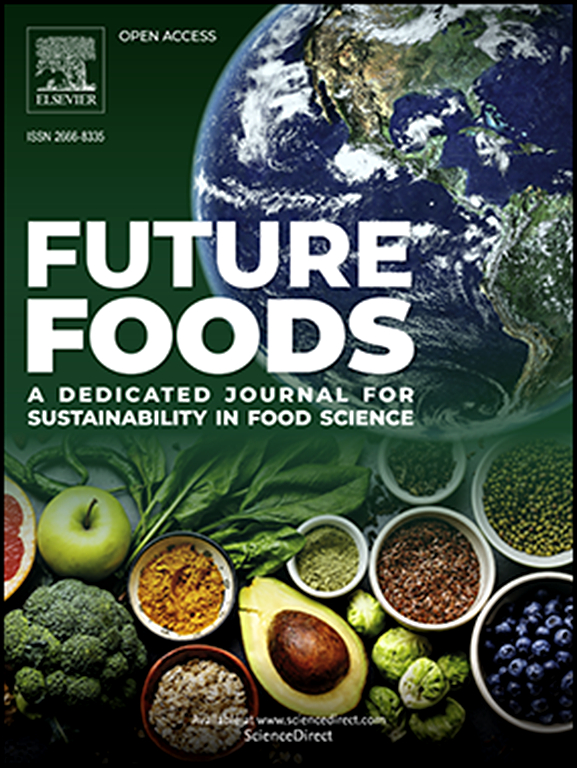冷却废物:分析家庭面包冷冻行为及其对面包浪费的影响
IF 8.2
Q1 FOOD SCIENCE & TECHNOLOGY
引用次数: 0
摘要
消费者储存面包的做法会显著影响面包的保质期,而面包是家庭中浪费最多的食物之一。解决消费者面包浪费问题对于减少家庭食物浪费总量至关重要。然而,尽管面包和烘焙产品在我们的饮食中起着至关重要的作用,消费者对冷冻面包的行为却很少受到关注。这项研究基于2033个澳大利亚家庭的全国代表性样本,调查了面包冷冻习惯和家庭面包浪费之间的联系。大多数家庭通常购买白面包,其次是全麦面包。大约27%的受访者表示,他们在购买面包后立即冷冻面包,而大多数人在到期前不会冷冻或冷藏面包。对于那些购买大量面包的人来说,冷冻面包的可能性大大增加。农村和偏远地区的消费者倾向于在购物后立即冷冻面包,而那些没有工作的人则不太倾向于冷冻面包。研究结果表明,在家里冷冻面包可以有效地减少面包浪费。本文章由计算机程序翻译,如有差异,请以英文原文为准。
Chilling the waste: Analysing household bread-freezing behaviours and their effect on bread waste
Consumer bread storage practices significantly affect the shelf life of bread, which is one of the most wasted food items in households. Addressing consumer bread waste is crucial for reducing overall food waste at home. However, despite the vital role of bread and bakery products in our diets, consumer behaviour regarding freezing bread has received limited attention. This research investigates the connection between bread-freezing habits and household bread waste based on a nationally representative sample of 2033 Australian households. Most households usually purchase white bread, followed by wholemeal bread. Approximately 27 % of respondents indicated that they freeze bread immediately after shopping, while most do not freeze or refrigerate it as the expiry date approaches. The likelihood of freezing bread rises significantly for those who buy larger quantities. Rural and isolated consumers are inclined to freeze bread right after shopping, while those not in the workforce are less inclined. The findings indicate that freezing bread at home effectively reduces bread waste.
求助全文
通过发布文献求助,成功后即可免费获取论文全文。
去求助
来源期刊

Future Foods
Agricultural and Biological Sciences-Food Science
CiteScore
8.60
自引率
0.00%
发文量
97
审稿时长
15 weeks
期刊介绍:
Future Foods is a specialized journal that is dedicated to tackling the challenges posed by climate change and the need for sustainability in the realm of food production. The journal recognizes the imperative to transform current food manufacturing and consumption practices to meet the dietary needs of a burgeoning global population while simultaneously curbing environmental degradation.
The mission of Future Foods is to disseminate research that aligns with the goal of fostering the development of innovative technologies and alternative food sources to establish more sustainable food systems. The journal is committed to publishing high-quality, peer-reviewed articles that contribute to the advancement of sustainable food practices.
Abstracting and indexing:
Scopus
Directory of Open Access Journals (DOAJ)
Emerging Sources Citation Index (ESCI)
SCImago Journal Rank (SJR)
SNIP
 求助内容:
求助内容: 应助结果提醒方式:
应助结果提醒方式:


